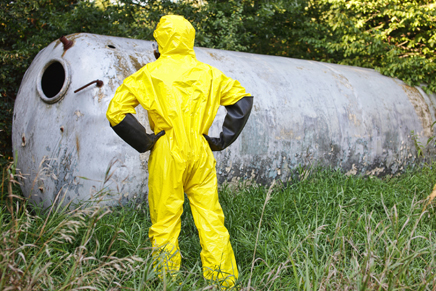

Specialty Liability Coverages
In our last issue, we discussed the liability insurance coverages that every business should have. In this issue, we’ll discuss some specialized coverages that are “nice to have” for some businesses, and “must haves” for others.
Professional Liability and Errors and Omissions (E&O) Coverage
People in certain professions can cause harm to others — whether physical, emotional or financial — through negligent practice of their profession. These people need either professional liability or errors and omissions coverage to protect themselves from the financial risk of lawsuits.
Historically, insurance for professionals such as lawyers was called professional liability; policies for quasi-professionals were labeled E&O. However, insurance companies now tend to use the terms interchangeably.
Both PL and E&O policies cover individuals against liability incurred as a result of errors and omissions in performing professional services for clients or customers. Both cover economic losses suffered by third parties but not property damage — which is typically covered under your general liability policy. Most PL and E&O policies also exclude coverage for bodily injury — with a key exception being professional liability/medical malpractice for doctors.
You don’t have to consider yourself a “professional” to need coverage for negligent acts. If you give advice and recommendations, if you create programs or products for your customers or if you provide a service, you need liability protection. In addition to lawyers, doctors and accountants, other professionals who need protection include:
- Real estate agents
- Data processors
- Pest control services
- Appraisers
- Architects and engineers
- And more!
Pollution Liability Insurance
Also known as environmental liability, pollution liability claims can occur when an organization’s activities involve a release of pollutants that negatively affects the property of another party or causes bodily injury. Pollution liability can arise from many different sources and are not limited to particular industries. It can stem from on- and off-site conditions, waste disposal and transportation exposures, merger and acquisition activities, historical and current operations and storage tank releases, to name but a few.
Insurers have developed pollution liability policies to cover a wide variety of circumstances. Two that you’re most likely to come across are pollution legal liability insurance and asbestos containment coverage.
Pollution legal liability insurance covers claims from unknown pollution conditions at specific locations. Generally, these policies include claims for bodily injury, property damage and cleanup costs. They’ll often cover business interruption and transportation claims, but not the costs of ongoing cleanup or existing, known contamination. Asbestos containment coverage covers building owners if a release of asbestos occurs. Policies cover sudden/accidental release of asbestos, which results in bodily injury or property damage. Landlords of older buildings might consider this coverage.
Data Coverages
Companies that store or use financial, personal identifying or medical information of individuals can be liable if that information is stolen, lost or hacked. Data breach liability insurance (or cyber liability insurance) offers protection when a data breach occurs. Policies vary, but most will help cover the cost of identifying and correcting the source of the breach, the cost of notifying affected customers and the cost of offering credit monitoring and identity theft services.
Companies that store or process information for other organizations can also buy data processing insurance to cover themselves from the liability costs associated with the loss or damage to another organization’s data.
When a data breach occurs, companies have to spend time and money to notify affected customers and offer them credit monitoring and identity theft services. Insurance companies now offer insurance to cover those costs. Some insurers also provide services that work directly with customers to help restore their good credit.
Property Liability
When you rent another party’s property or when you have another party’s property in your custody, care or control, you can become liable if that property is lost, damaged or stolen. Rental insurance often includes both property coverage to protect the equipment from damage and liability insurance to protect the renter from legal claims based on the use of the equipment. Specialized rental insurance often costs less than similar coverage offered under your business owners policy or other standard commercial property policies.
When you take care, custody or control of another person or business’s property, you become a “bailee.” Most property policies specifically exclude coverage for others’ property if it becomes lost, damaged or stolen while in your care. Businesses that take control of other people’s property, such as during repairs, servicing or transport, need bailee insurance to protect themselves from this financial risk.
Although bailee coverage was originally used to cover the bailee’s liability exposure, it is often expanded to provide a no-fault coverage to protect the customer’s property against any damage, whether or not there is negligence and subsequent liability. Your coverage should have high enough limits to cover the total value of other people’s property that may be in your control at any one time.
Many liability insurance policies will cover the cost of defending a lawsuit, in addition to covering the costs of any claims or settlements. We recommend that all businesses review their operations and insurance program annually to ensure they have the coverages they need. To set an appointment, please contact us.
OSHA Publishes Updated Slip, Trips and Falls Rule
Website Accessibility Lawsuits Increasing
Winter’s Temperatures Bring Risk of Hypothermia and Frostbite.
The information presented and conclusions within are based upon our best judgment and analysis. It is not guaranteed information and does not necessarily reflect all available data. Web addresses are current at time of publication but subject to change. SmartsPro Marketing and The Insurance 411 do not engage in the solicitation, sale or management of securities or investments, nor does it make any recommendations on securities or investments. This material may not be quoted or reproduced in any form without publisher’s permission. All rights reserved. ©2017 The Insurance 411. Tel. 877-762-7877. www.theinsurance411.com